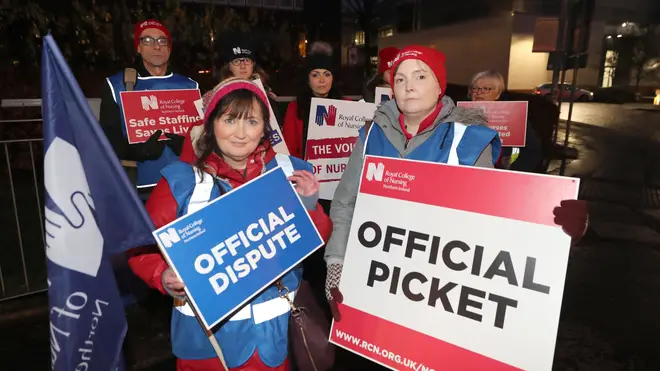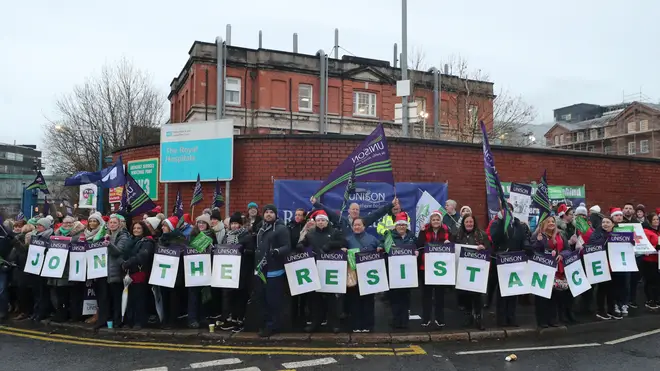
Matthew Wright 7am - 10am
18 December 2019, 20:35

Hospital have been forced to cancel appointments and units have closed across Northern Ireland due to an unprecedented nurse's strike.
The Royal College of Nursing - whose members have never walked out before - says staff there should be paid the same as elsewhere in the UK.
Northern Ireland's had no health minister since the Stormont executive collapsed three years ago.
Picket lines have now formed across Northern Ireland as health workers took unprecedented industrial action over pay.
About 6,500 nurses will be on strike until midnight.
In total, more than 20,000 people who work in the Northern Irish Health Service were involved in the action.
Joanne Stephenson, a nurse at the Ulster Hospital on the outskirts of east Belfast, said the decision to strike was a "difficult" one.
"Staff didn't want to put patients at risk but actually they are aware patients are at risk already because of the staffing levels," she said.
"People have got to the end of their tether, there's only so much good will. They are working overtime, they are not getting breaks, they are not getting a chance to do what they want to do and they are going home and there's tears, there's real tears about what staff want to be able to do but can't do."
She said there is frustration that the health service is in crisis at a time when Stormont powersharing is in cold storage.
"We have to do something - we owe it to our patients. We can't not. But the politicians have to do something - the ball's in their court," she added.

Edel Coulter, a cancer nurse, joined colleagues in a demonstration at Belfast City Hospital.
She said: "We are here for patient safety and also for pay parity. We are the lowest paid workers in the UK and data shows that nurses are actually leaving Northern Ireland faster than we can recruit them."
Andrew Tumilson, a deputy charge nurse at the Ulster Hospital, said he hopes politicians are listening.
"The inadequate workforce planning which has happened in Northern Ireland over the last number of years has now come to a stage where action is immediately required in order to not only restore pay parity, which will help in relation to retention of our current registered staff, but also help attract staff to come here and stay here and work.
"But equally this is about public safety and raising the profile that we need an adequate workforce within our registered nursing staff in order to protect the public and ensure that safe services are delivered to our public across the 24-hour clock."